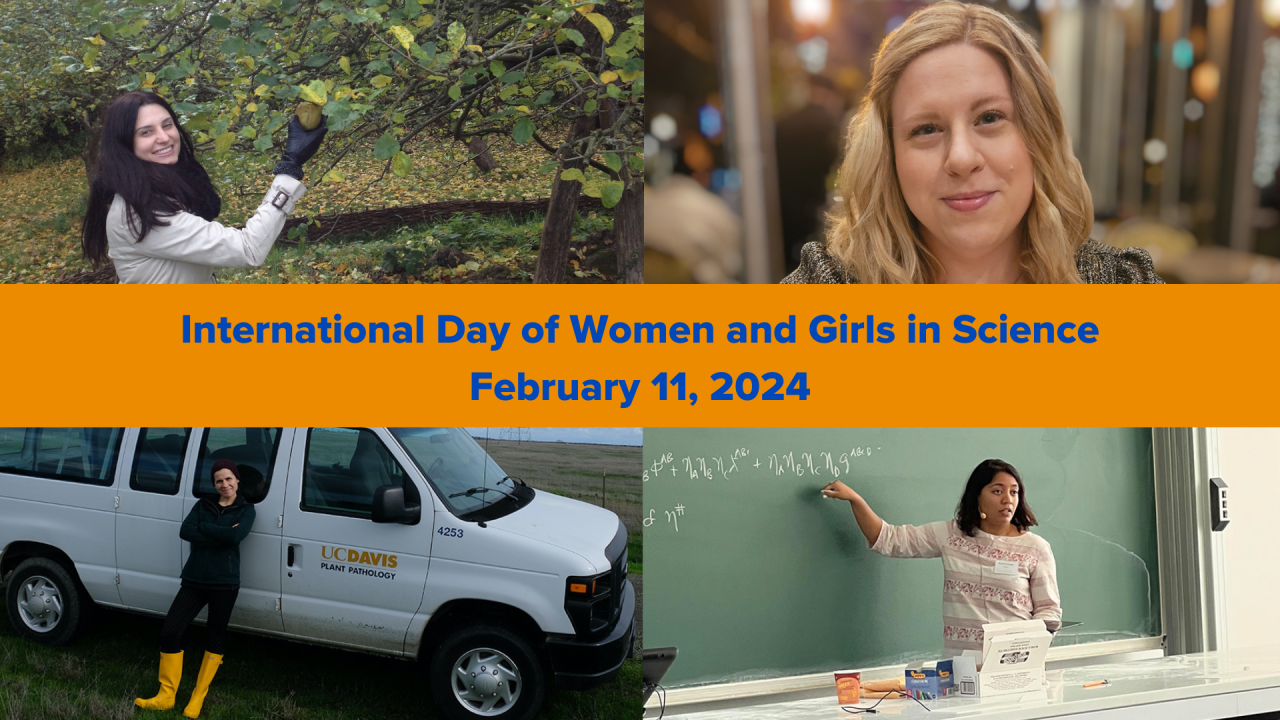
Women in STEM: Celebrating Our International Scholars
In keeping with its commitment to the equitable representation and advancement of women in STEM (science, technology, engineering and math), UC Davis continues to welcome and support women working in STEM fields as they arrive on campus from all over the world. Through a network of faculty, staff, centers and clubs, UC Davis provides university resources and mentorship.
All international students and scholars (faculty and researchers) work with the Services for International Students and Scholars office, which prepares documents for their U.S. visa applications, offers help with immigration and visa issues, and fosters a sense of community in their new home at UC Davis. From engineering to physiology, physics to ecology, meet four international scholars who are lighting the way for more women and girls in STEM, and who are actively contributing to the United Nations Sustainable Development Goals through their research, teaching and service.
Glaucia Helena Carvalho do Prado
Department of Chemical Engineering
College of Engineering
Born and raised in Brazil, Glaucia Helena Carvalho do Prado moved to Canada to complete her Ph.D. in chemical engineering before coming on board as an assistant professor of teaching at UC Davis in 2021. Her current research in engineering education focuses on students’ wellness and mental health in engineering as well as culturally relevant pedagogy and scientific history.
“While looking for inspiration in published literature, I found data suggesting that engineering students are less likely to practice self-care and seek help when going through mental health distress,” she says. “This finding served as motivation to develop and deliver an elective course to promote wellness among engineering students and show its relationship with engineering practice and leadership. My research helps students develop and exercise such skills so they can consider the human aspect in their engineering decisions and the communities impacted by their proposed solutions.”
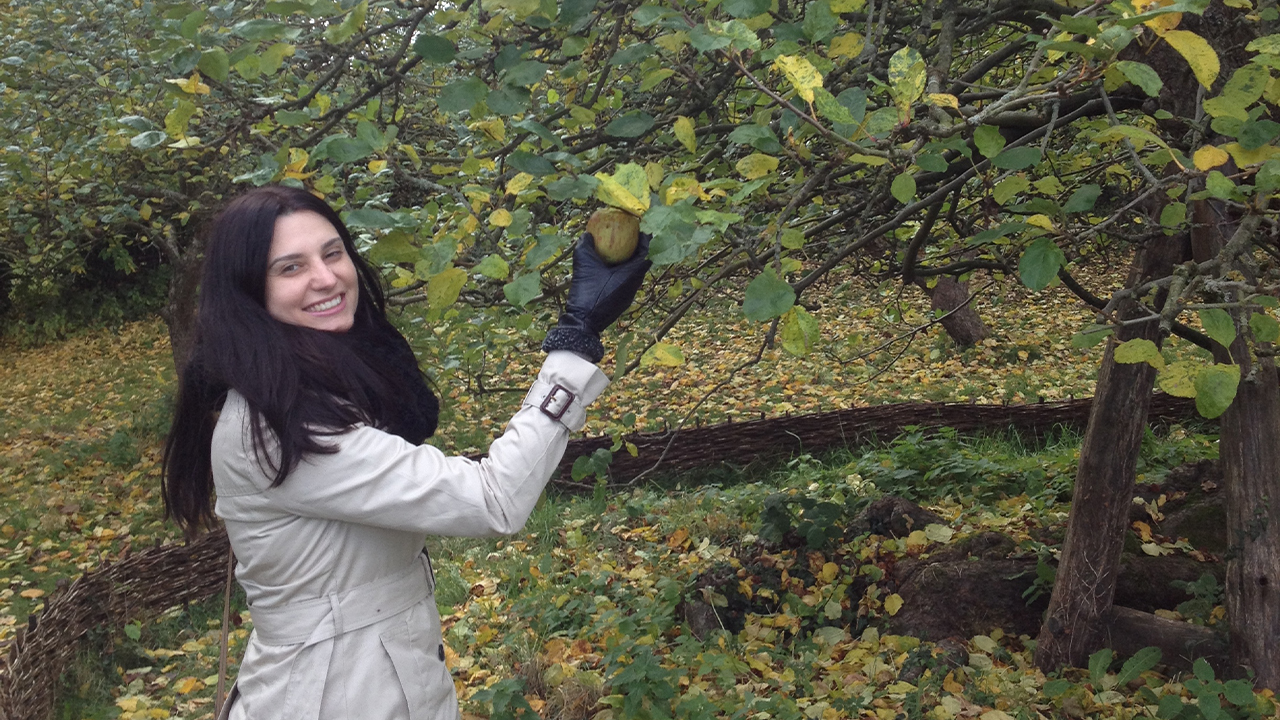
As a child, Prado never imagined becoming an engineering professor, let alone one who teaches in a different language. However, this career trajectory now allows her to serve as a trusted resource to students, helping mentor them to achieve their full potential. “It is my hope that my research will inspire, engage and guide the next generation of women and girls in STEM to be confident using their technical knowledge to solve problems that will impact our society while also remembering the importance of taking care of their mental health and wellness,” she says.
Lucie Jiraska
Department of Plant Pathology
College of Agricultural and Environmental Sciences
Hailing from the Czech Republic, Lucie Jiraska earned her bachelor’s and master’s degrees in Prague before pursuing her Ph.D. in Auckland, New Zealand, transitioning from studying the succession of wood-decaying fungi in natural forests to exploring the impact of pesticides on soil microbial biodiversity in vineyards. Now a postdoctoral scholar at UC Davis, she studies how soil viruses change in space and time—and how they survive California’s long, dry summers.
“As a microbial ecologist, my research is primarily a continuous process of discovery and understanding of patterns within microbial communities,” she says. “Understanding how viruses endure persistent environmental stress conditions, like long dry summers, holds immense potential for practical use, ranging from applications in agriculture to human medicine.”
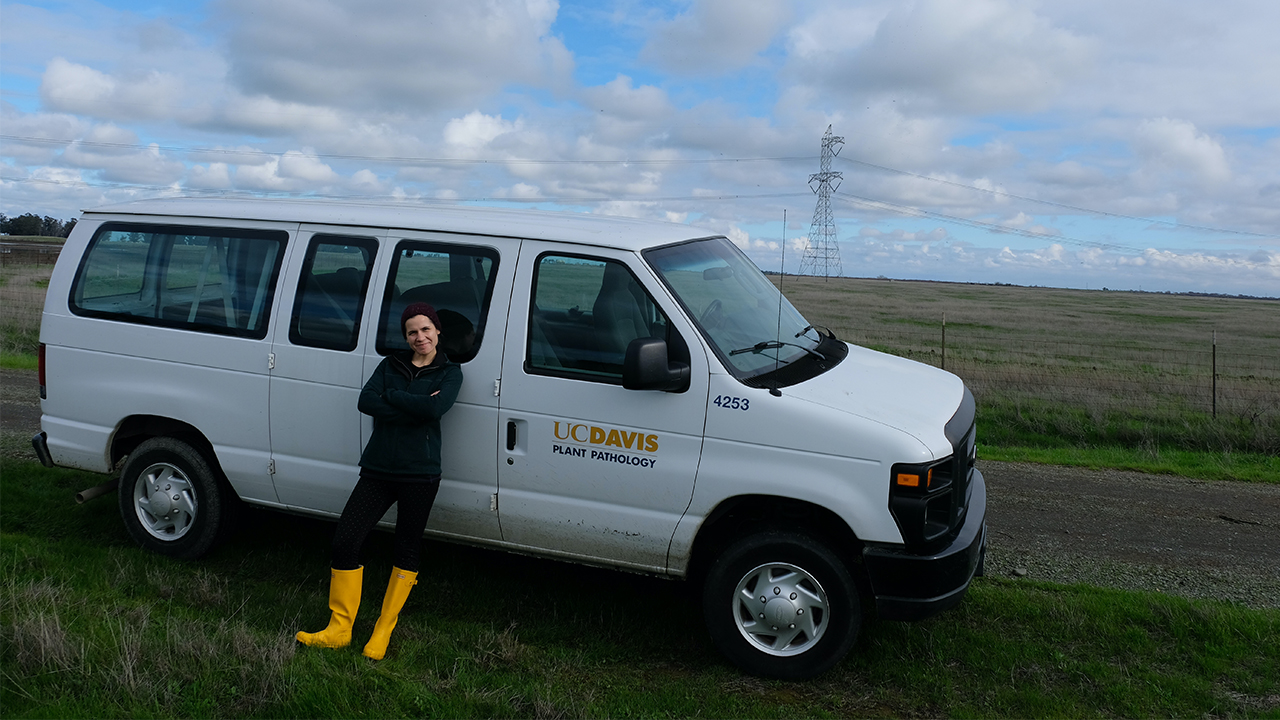
Jiraska hopes that one day her career path will inspire more women from similar backgrounds to choose research, specifically microbial ecology, as their profession. “I am particularly grateful for the opportunity to work in Joanne Emerson’s lab under her guidance,” she says. “Dr. Emerson represents a strong voice in the field of viral ecology and is an inspiration for younger scientists like me. I can only hope that, in the future, my work will similarly inspire someone on their scientific journey.”
Shruti Paranjape
Department of Physics
College of Letters and Science
Shruti Paranjape grew up in Chennai, India, studying at multiple institutes around the country before moving to Ann Arbor, Michigan, to complete her Ph.D. in theoretical and mathematical physics. She is now a postdoctoral scholar at the Center for Quantum Mathematics and Physics, researching the fundamental interactions that govern the physics of nature.
“I study scattering amplitudes in quantum field theory (QFT), understanding their mathematical properties and using them to better understand the QFT framework,” she says. “Such studies are important because we do not have a complete description of all four fundamental forces yet. Between dark matter, inflation and quantum gravity, there is a lot that still needs to be understood. I believe science to be an innately important human endeavor to try and make sense of the world around us.”
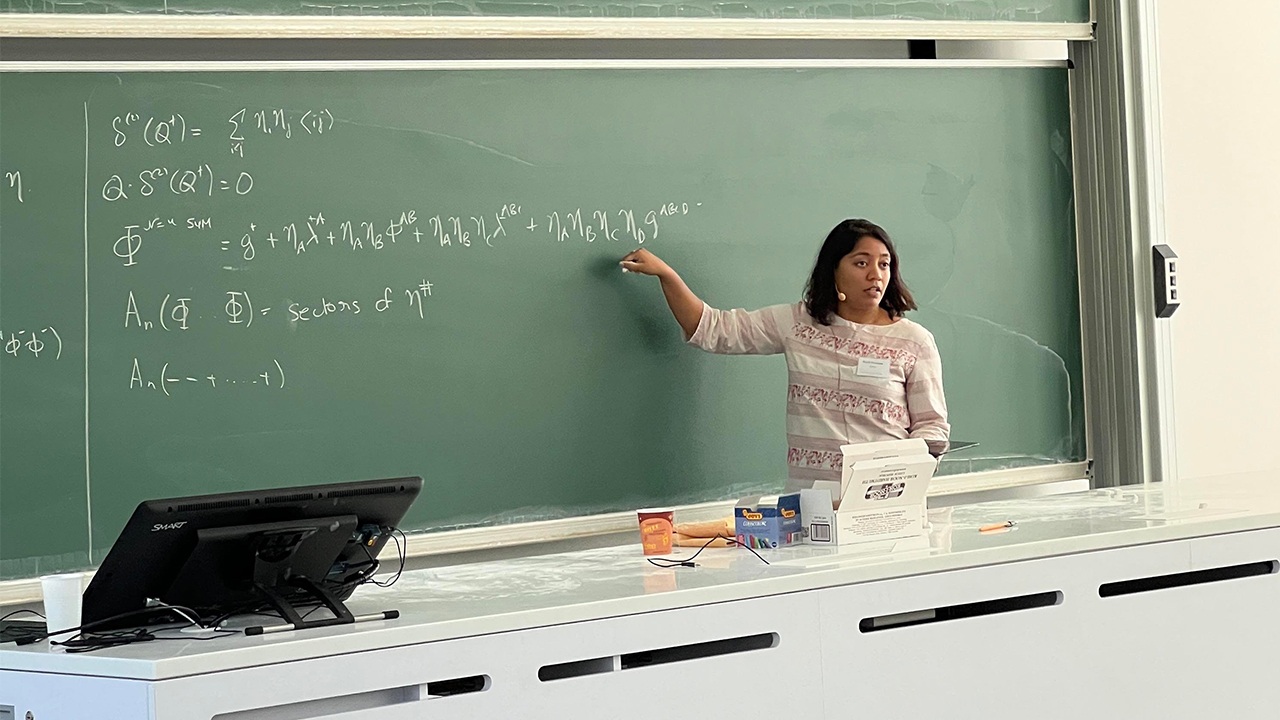
Paranjape attributes submitting a paper to an academic journal as the first time she felt like a “real physicist” who could succeed in STEM. “Physics is often seen as hard and daunting, but physics is for everyone!” she says. “As in any other field, all you need is motivation, opportunity and hard work. For women and girls in particular, the social narrative is that ‘hard sciences’ are not for them. I hope to lead by example and help remove some of the barriers to a woman’s career in physics.”
Emelie Strandberg
Department of Neurobiology, Physiology and Behavior
College of Biological Sciences
A native of Sweden, Emelie Strandberg grew up in a small town before moving to the center of the country to study sports medicine and exercise physiology as part of her Ph.D. in sport science. Arriving as a postdoctoral scholar at UC Davis in 2022, she is currently investigating the effects of various dietary supplements, such as protein powders and collagen-based supplements, on skeletal muscle and ligament tissue.
“Our lab’s research could offer sustainable and possibly more environmentally friendly alternatives to traditional protein sources, which is particularly relevant as the global population grows and seeks sustainable food sources,” she says. “Understanding how different protein sources affect muscle protein synthesis can contribute to more effective nutritional strategies, benefiting individuals recovering from injuries as well as athletes and the elderly facing muscle degeneration.”
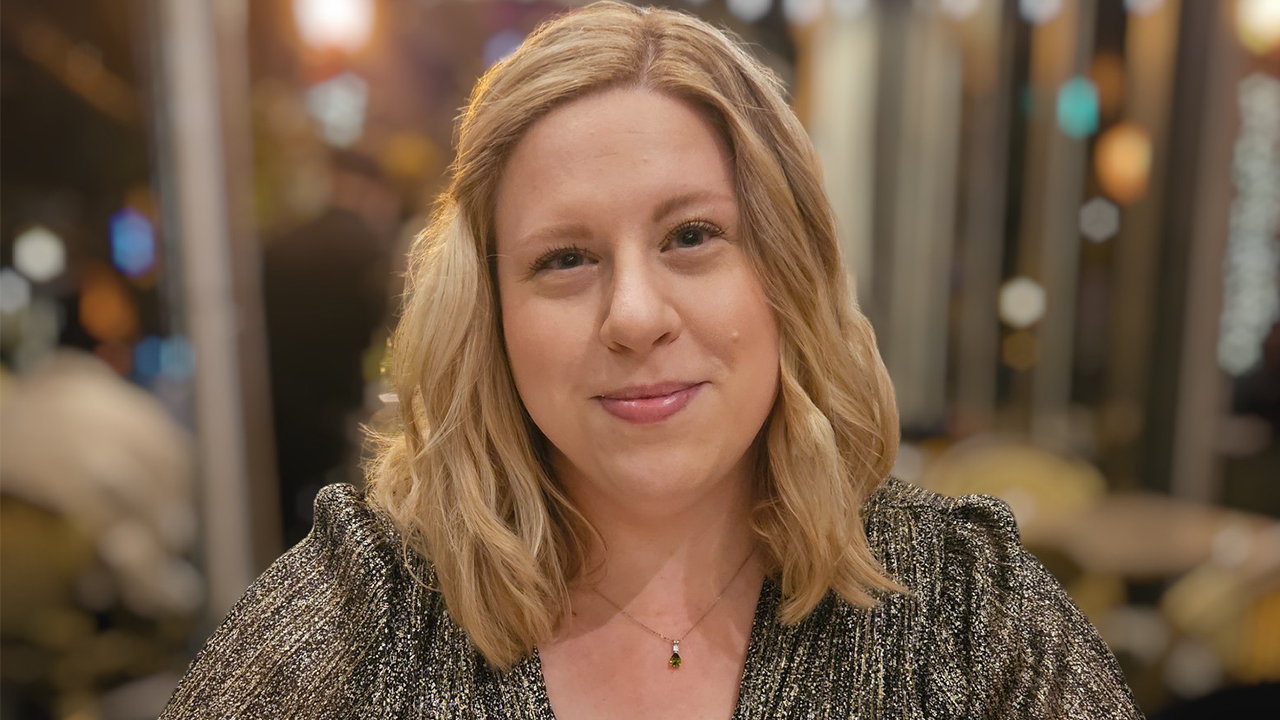
Before Strandberg joined the Functional Molecular Biology Lab on campus, she was part of a study that explored how exercise impacts breast cancer patients undergoing chemotherapy. “Being part of their journey and seeing the real impact of our work was truly fulfilling,” she says. Along the way, her female mentors in STEM served as a constant source of inspiration. “My mentor, along with many other pioneering women in research, have not just contributed to their respective fields, they have also opened doors for future generations of women in science. I hope to be able to pass on the same encouragement and inspiration that I received.”